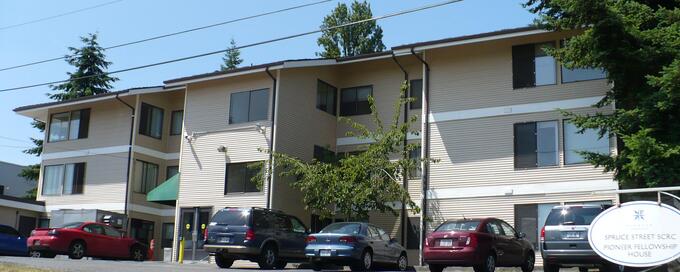Rebuilding Your Life in a Residential Reentry Center After Prison
You are here
- Home /
- About /
- Success Stories /
- Rebuilding Your Life in a Residential Reentry Center After Prison

A resident in Pioneer Fellowship House, a federal residential reentry center in Seattle, shared his experience serving time in prison and then serving out the remainder of his sentence in the reentry center. While at the reentry center, he gained employment at a hotel and even plays back-up piano at night when needed.
--------------------------------
“What are halfway houses? For those that have only heard about them, they can be a number of things: job placement, adult day care, or even considered a threat to the community. For those of us who have actually been in the position to live in one, our experiences show something completely different (though sometimes ‘adult day care’ rings more true than we would like).
What halfway houses (residential reentry centers) are in purpose is not an easy thing to define – but I believe they filter people. Whatever the intentions or design, the reentry centers take people who have an honest desire to pull themselves away from the streets and give the individuals a platform from which they can move forward. Before I get into what that means, let me illustrate some of the challenges that any resident of a halfway house faces.
An observation I have about prison is that it is a place where ‘self’ and ‘humanity’ go to die. In many incarcerated people, more than half I would dare say, those two attributes are very hard to find. A large segment of the prison population is made up of people who have never really learned what humanity is and their sense of self is somehow hinged upon the ability to take advantage of the weakness of others. Yet, the focus on punishment over redemption that has become an obsession in our culture has created an authority-driven prison system world where all elements of a person, good and bad, are systematically snuffed out for the purpose of turning that individuals into a number. The next is what I hope is an unintended consequence; forcing people to become so dependent on the prison complex for every element of their lives (even down to bathroom usage) that they forget what it is to live in a world where they must put forth effort.
While this next statement may provoke scoffs from the “prison cast system” believers out there, it is nonetheless true, it doesn’t actually matter what crime has been committed. Maybe there will be harsher treatment and less humanity for some over others, but in this all are deconstructed equally. I’ve spent a total of 13 ½ years in prison, and in that time I can honestly say that the people who were able to retain their “humanity” and “self” did so in spite of the system rather than because of it. I had a life deep with responsibilities and rich in successes and failures in my time before incarceration, but the breakdown of prison made possible a culture shock the likes of which took my breath away when faced with the realities of even a relative freedom. Things weren’t going to happen to me anymore, I needed to make them happen. I needed to try. I needed to relocate my “self,” rebuild my “humanity” and take those muscles of self-reliance that had been forced into disuse (and therefore atrophied), and regrow them.
This is where the filter comes in that I mentioned previously. For some, that culture shock, that process, is too much. They can’t find reasons to want success, or as insane as this may sound, life inside is just easier and therefore more attractive. Residential reentry centers, or halfway houses, do two things for these people: the centers give them exposure to the real world to illustrate the error of that line of thinking and time to drive it home. The centers do not spoon-feed you; those that don’t understand it do not stay. Those of us that do get it are given the tools to rebuild our muscles of self, humanity and effort anew (for some it is the first time in their lives).
It is not an easy thing to unlearn over a decade’s worth of forced and scarred education, yet in this environment at the reentry center of controlled exposure, that unlearning and rebuilding process has an honest and real chance to take.
And that’s it – that is the filter – separating those who want to succeed from those who do not. Like anything else in life, it is not always 100 percent effective, and no one can truly predict the paths life will take for both the successes and failures of this meat grinder. The muscles of self, humanity and pride are allowed to grow in a reentry center. I will state that those of us who have passed through this filter and have been found worthy are definitely made better because of it.”

